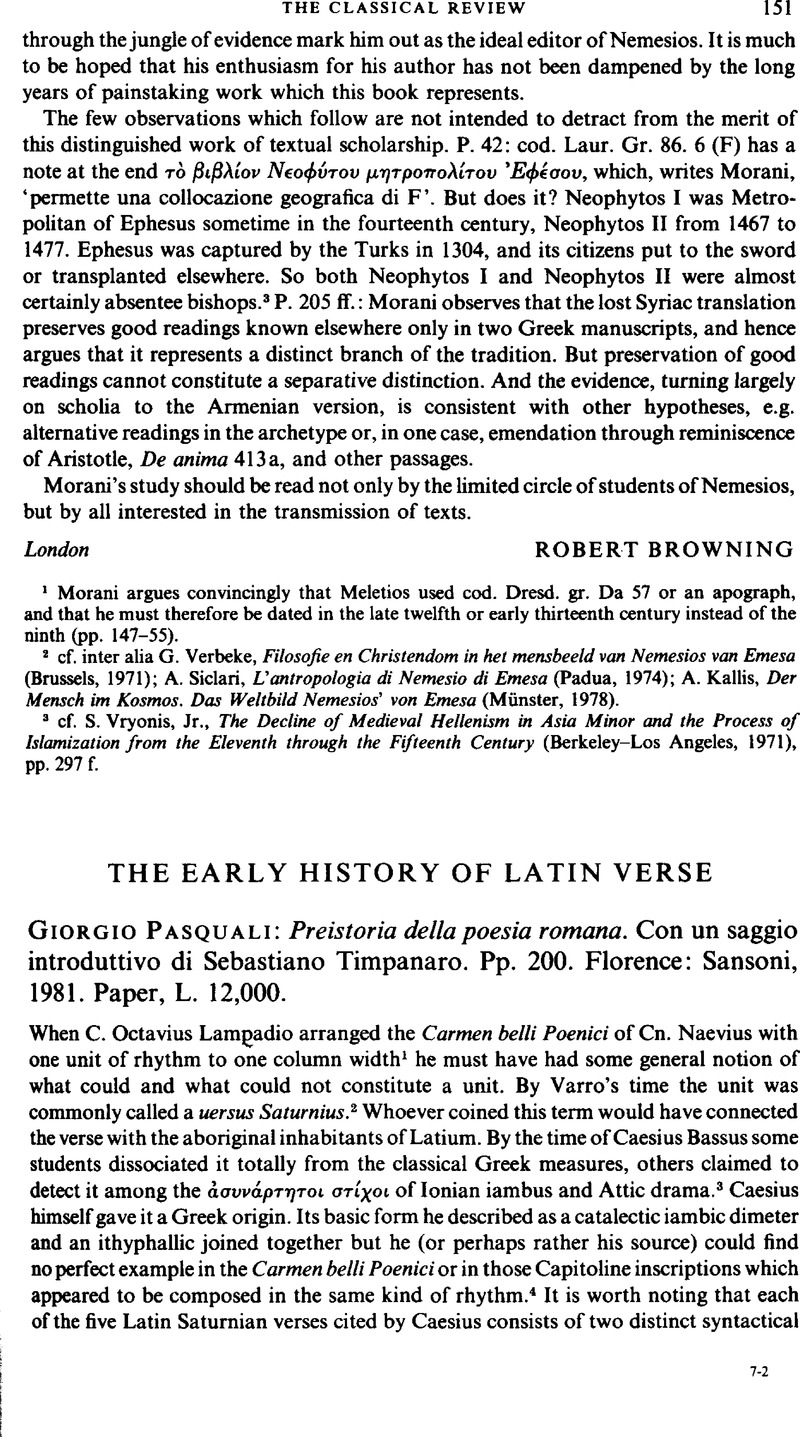No CrossRef data available.
Article contents
The Early History of Latin Verse - Giorgio Pasquali: Preistoria della poesia romana. Con un saggio introduttivo di Sebastiano Timpanaro. Pp. 200. Florence: Sansoni, 1981. Paper, L. 12,000.
Published online by Cambridge University Press: 27 February 2009
Abstract

- Type
- Reviews
- Information
- Copyright
- Copyright © The Classical Association 1982
References
1 This, I think, is implied by Sueton. Gramm. 2. 4 Naeuii Punicum bellum quod uno uolumine et continenti scriptura expositum diuisit in septem libros. Cf. Leo, F., Die plautinischen Cantica und die hellenistische Lyrik (Berlin, 1897 [Abh. d. kön. Ges. d. Wiss. z. Göttingen. Philol.-hist. Kl. n. F. Bd. 1.7]), p. 7 n. 2.Google Scholar
2 See Ling. 7. 36. Cf. Fest. p. 432. 9–20, s.v. Saturno.
3 See Gramm. Lat. 6. 265. 8–266. 16.
4 For a different Graecising explanation see Diomedes, Gramm. Lat. I. 512. 18–22 (making Naevius himself the inventor), Pseud.- Ascon. Comm. Cic. Verr. 1. 29, p. 215. 16–21 Stangl.
5 Whoever composed the epigram attributed by Gellius (1. 24. 2) to Naevius himself must have known the Carmen belli Punici and yet, it must be confessed, did not restrict himself to this pattern.
6 Der saturnische Vers (Berlin, 1905 [Abh. d. kön. Ges. d. Wiss. z. Göttingen, Philol.-hist. Kl. n. F. Bd. 8. 5]).
7 Horsfall's, N. useful list of Fraenkel's publications, JRS 66 (1976), 200–205, does not make the facts entirely clear.Google Scholar
8 Aus altrömischen Priesterbüchern (Lund, 1939), pp. 278–279.Google Scholar
9 Many a teacher of Latin in this country would do well to insist in the same degree that his pupils know the boundaries and quantities of syllables.
10 cf. Timpanaro's report of the views of another pupil of Pasquali's, Grassi, Eugenio, in A&R 6 (1961), 160–161.Google Scholar
11 On the Saturnian and Irish verse from a different standpoint see recently West, M. L., Glotta 51 (1973), 175–177.Google Scholar


